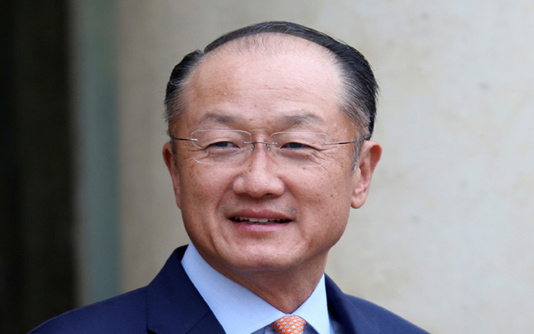BALI (INDONESIA), Oct 11, 2018 (BSS) – The World Bank President Jim Yong
Kim today underscored the need for addressing two long-term issues of
‘climate change’ and ‘human capital’.
He said these are critical to every country either for developed or
developing; rich or poor, with fierce sense of urgency to boost long-term and
inclusive economic growth.
Kim was delivering his remarks at the press conference of the 2018 Annual
Meetings of the World Bank Group and IMF held at the Bali International
Convention Center this morning.
Terming climate change as the first of the two long-term issues, Kim said,
“Climate change is an existential threat to global development and efforts to
end poverty. The warming planet is already having an impact on the poorest
and most vulnerable”.
He said the new report from the IPCC shows that warming up to 1.5 degrees
Celsius is closing rapidly and will affect every single living creature on
the planet.
The World Bank President said the second issue is human capital – the
knowledge, skills, and health that people accumulate over their lives.
“We know that politicians in rich and poor countries alike face uphill
struggles to fund better healthcare, put more money into schools, and make
other investments in people that yield measurable dividends only over time,”
he added.
Kim said they are launching a new tool to help countries make those
investments for their people-the first Human Capital Index.
“Policies to build human capital are some of the smartest investments that
countries can make to boost long-term, inclusive economic growth,” Kim said
adding right now, a quarter of the world’s young people are unlikely to
achieve their full potential because of chronic malnutrition and illness that
result in stunting, which permanently affects a child’s cognitive
development, school performance, and future income.
He said if in a country, children grow up and remain unable to meet the
needs of the future workplace, that country will find itself incapable of
employing its people, unable to increase its output, and utterly unprepared
to compete economically.
The World Bank President said this index gives policymakers compelling
evidence that delivering better outcomes in children’s health and learning
can significantly boost the incomes of their people – and shape the direction
for their countries – far into the future.
“If we act with a fierce sense of urgency, we can create a world where all
children arrive at school well-nourished and ready to learn; where they have
a chance to grow up and become healthy, skilled adults; and where they can be
productive throughout their careers as they reach for their own aspirations.
That’s the world we want. This index can help get us there,” Kim added.
When asked about the global trade tensions, the World Bank President said
they have concerns over the trade tensions adding, “We are right now trying
to understand exactly where our client countries sit in the global value
chain. We are trying everything we can to build resilience in these
economies,”



